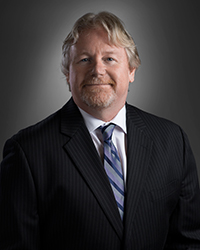|

Office Romances: What to do When Love is in the Air
by: Paul Edwards, CEDR Solutions
As an observant manager, you’ve noticed new romantic tensions between two employees. Flirty glances, little jokes and giggles—at first, you think it’s sweet. Many of us know at least one happy couple who began as an office romance, or work together currently, and they did just fine.
But as you think about it more, you start to remember every bad breakup you’ve ever had, and you wonder just how much workplace chaos will ensue if things turn sour between the new lovebirds.
Your first instinct might be to issue a flat-out ban on workplace romance, but hold that thought. Here are a few things to consider before you confiscate the arrows and show Cupid the door.
What’s Risky about Workplace Romance? Things to Keep in Mind
As you know, not every relationship ends well, and some of us handle it better than others. When coworkers break up, the best-case scenario is some lost productivity and awkwardness, but it can go (quickly!) downhill from there, drawing other team members in, prompting coworkers to choose “sides,” and affecting the mood of the entire office.
For management, associates, or practice owners, there’s an extra layer of risk involved in any office romance. If a supervisor jilts a subordinate, the employee could easily claim the relationship was non-consensual. Suddenly, “friendly snuggles” turn into unwanted advances, and a sexual harassment suit could ensue. Then there are your other team members. If they feel someone else has gotten preferential treatment in any way, you may open the practice up to a hostile working environment or discrimination lawsuit.
By the way, employers are strictly liable for the acts of management team members. That means that if someone in power does something they’re not supposed to, even if the doctor/owner didn’t know about it, she or he may also be in trouble.
What about Employees Dating Patients?
Ethical guidelines prevent medical practitioners from dating patients, but your team isn’t made up of doctors and may not feel bound. Plus, patients are not employees, so they cannot be forced to sign a Consensual Relationship Agreement. So, how do you prevent employee-patient relationship issues?
The first step is to make it clear that patients are discouraged from coming in when they don’t have an appointment scheduled. Additionally, patients should NEVER be allowed in the back office without supervision. This can invite HIPAA and safety violations, and cause all sorts of other issues.
Another big problem could arise if an employee-patient relationship ends badly. If the jilted lover is a team member, he or she might be tempted to access the patient’s medical or billing records. You will need to prevent such access, or you and your doctor could be on the hook for a HIPAA violation or lawsuit. NOTE: Your team must be trained to always maintain full HIPAA compliance at all times, and understand its importance.
Forbidden Fruit is Sweeter: Outright Office Romance Bans Don’t Work
As tempting as it may seem to create an all-out ban on office romances, it’s simply not as effective as it sounds. Often, this sets you up as the villain for your office lovebirds to sneak around. Odds are that the romance won’t stop, but rather be kept under wraps. This invites an inevitable blowup if things go awry, which spells disruption for your team and mayhem for your productivity.
So, if an outright ban isn’t the answer, should you let the fires of love burn themselves out, and stand there ready with the hose just in case? Not at all. Instead, build a firewall: Set clear expectations and have a fraternization policy in place, well in advance.
Relationships Should Be Covered by a “Fraternization Policy”
Your employee handbook should include a fraternization policy that directly addresses office romances. The purpose of this policy is to let employees know what’s okay and what is absolutely NOT okay. Your policy should require employees to disclose any workplace relationships, and it will contain elements that help shield the practice and its management from potential liability (and litigation) down the road.
Critically, employees who do disclose a workplace relationship should be required to abide by a Consensual Relationship Agreement (CSA), which shields the practice above and beyond the fraternization policy. (If you have a CEDR employee handbook, it contains both of these items.)
Your fraternization policy should also cover employee-patient relationships. Employees should know they must disclose any patient relationships, and keep management informed of major changes.
Keep your employees’ signed acknowledgement that they have received and understand your policies on file, along with any CSAs.
Use Your Head When Handling Affairs of the Heart
Ideally, you want to ensure that an office relationship doesn’t affect anyone’s performance at work—whether the (present or former) lovebirds’, your other team members, or yours. Your policies should make clear that behavior that negatively impacts the workplace will not be tolerated. And as with any other policy in your practice, it takes an HR expert to ensure that your fraternization policy and Consensual Relationship Agreement provide all the protections you and your dentist deserve.

Paul Edwards is the CEO and co-founder of CEDR HR Solutions, the premier provider of custom employee handbooks and on-demand HR support for dental practices of all sizes and specialties across the United States.
With over 25 years of experience as a manager and business owner, Paul is well-known throughout the dental community for his expertise in the HR issues that impact dental practices. He specializes in helping dentists and their office managers successfully handle employee issues and safely navigate the complex and ever-changing employment and labor law landscape.
Paul is a featured writer for The Profitable Dentist, Dentistry IQ and Dentaltown, and regularly speaks at dental seminars, conferences and CE courses across the country, including the Greater New York Dental Meeting, Yankee Dental Conference, AADOM, DOCS Education and more.
|